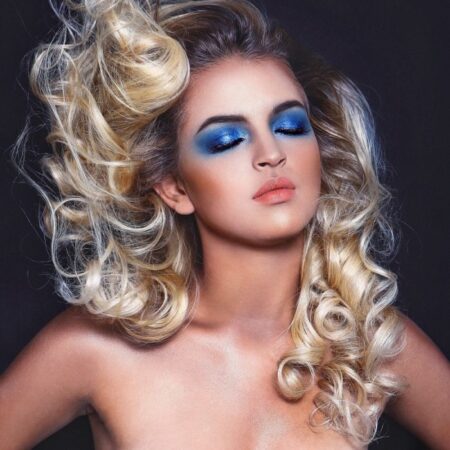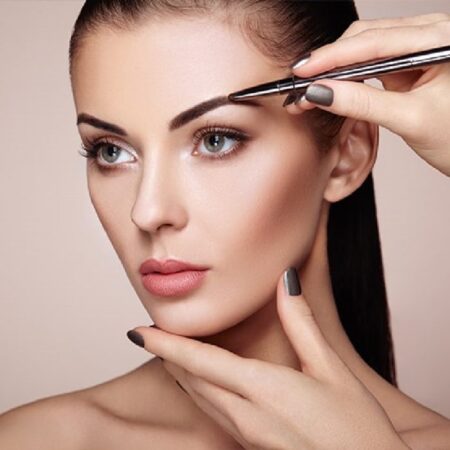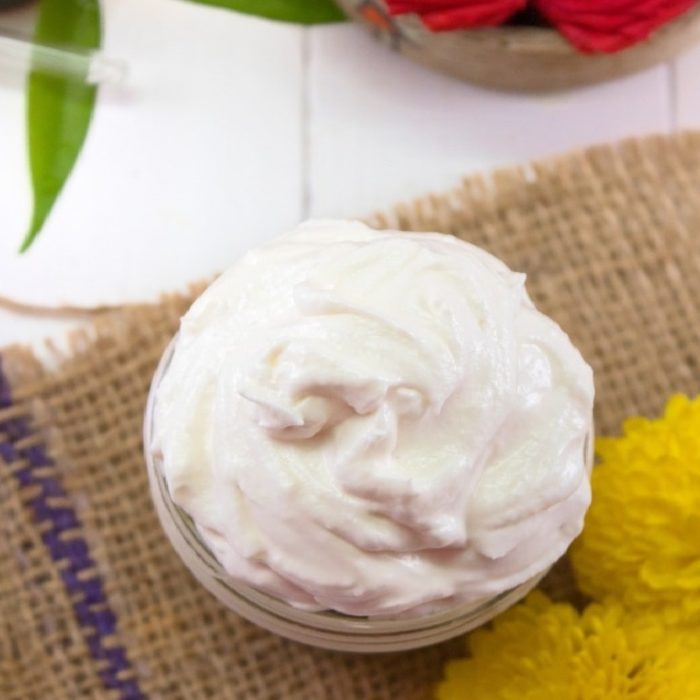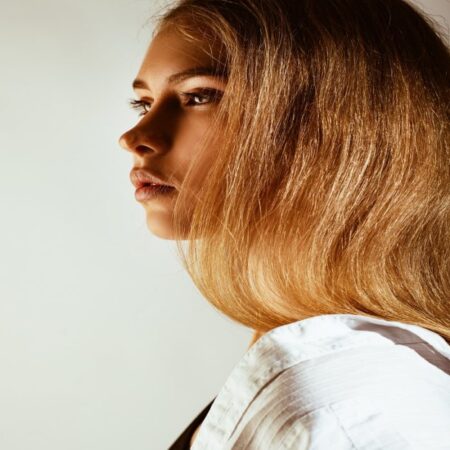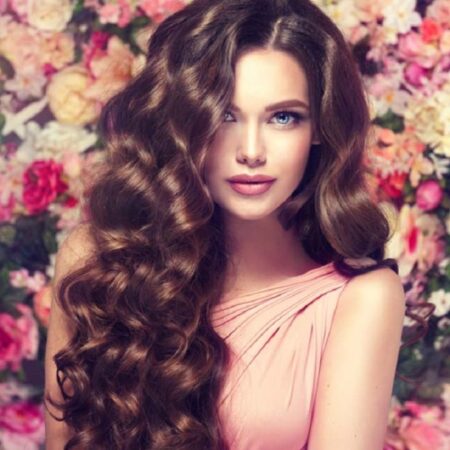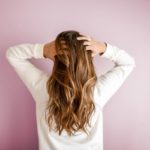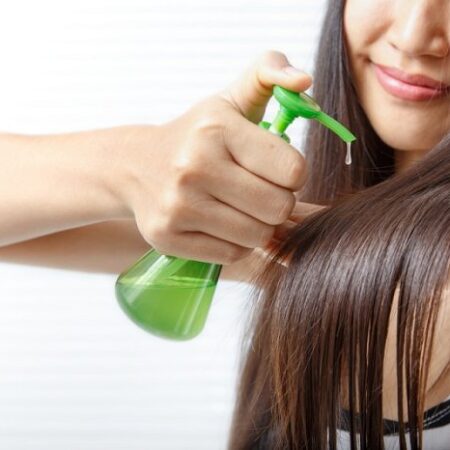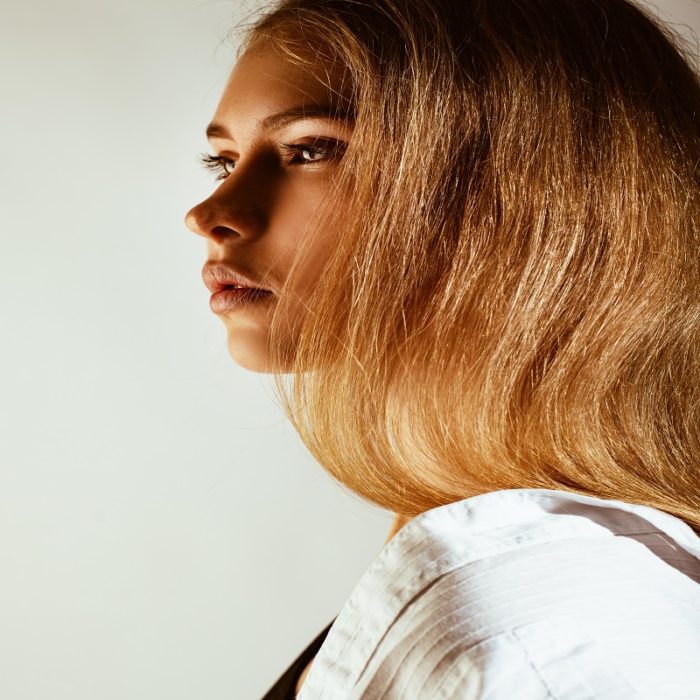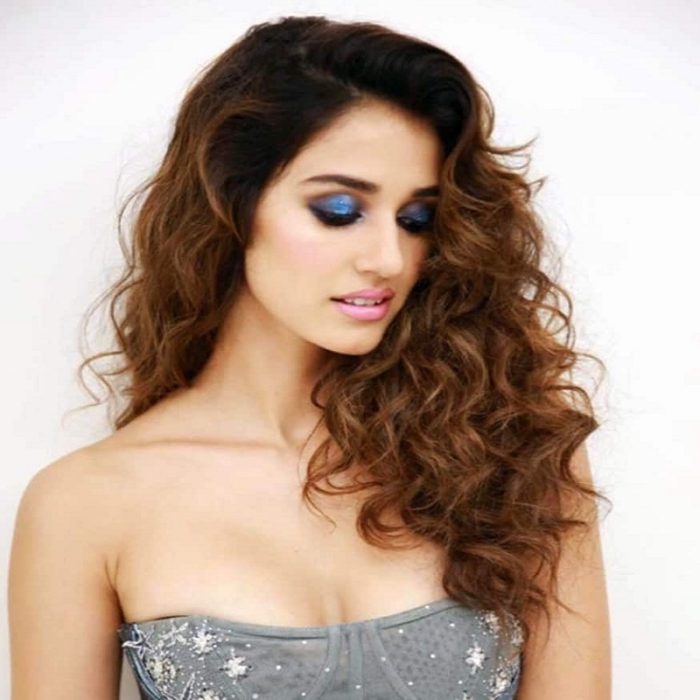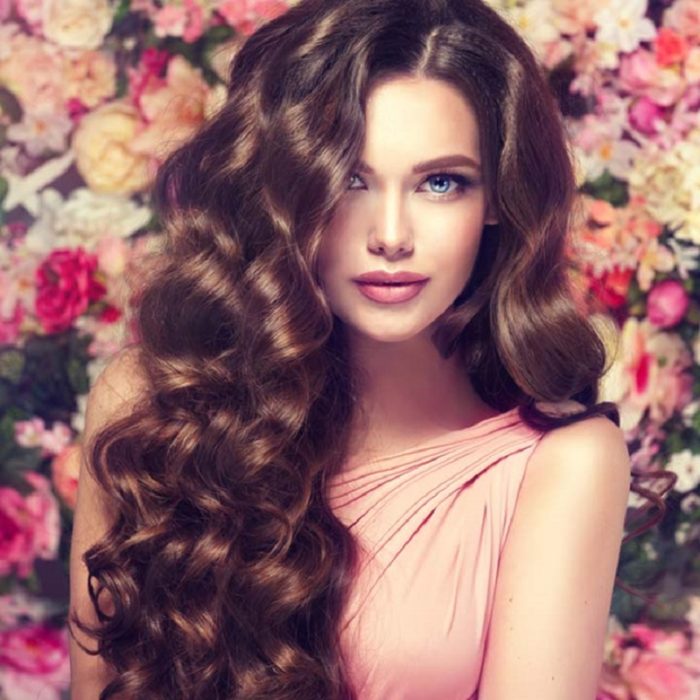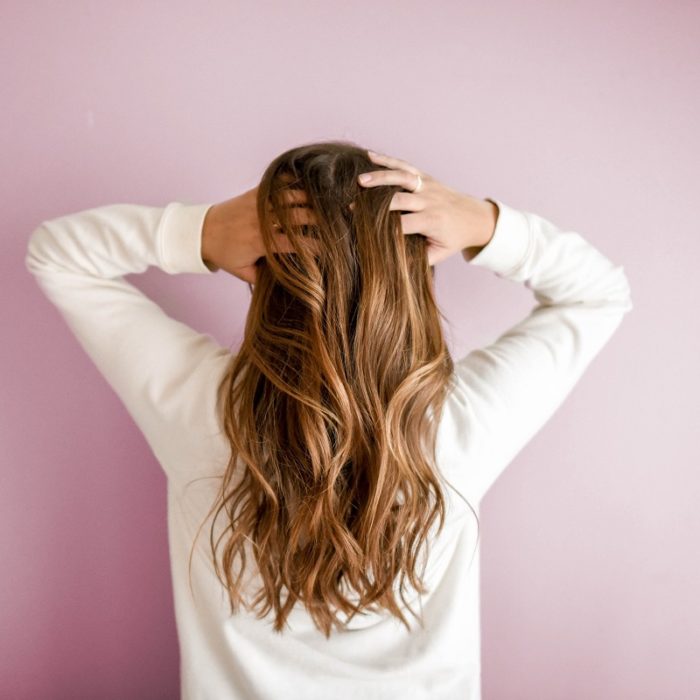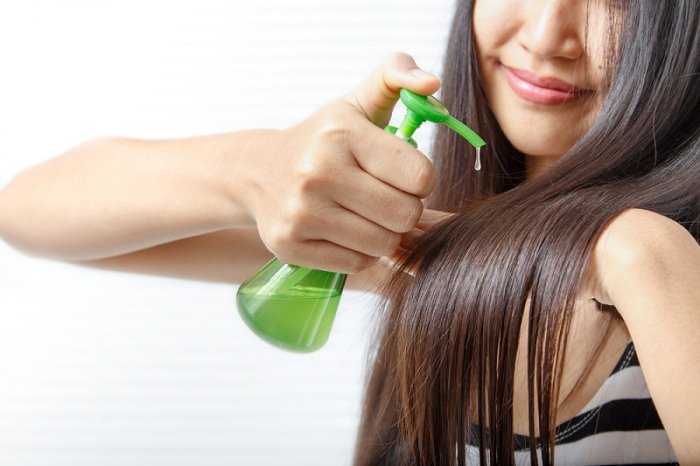How To Stop And Reduce Hair Loss – Effective Tips
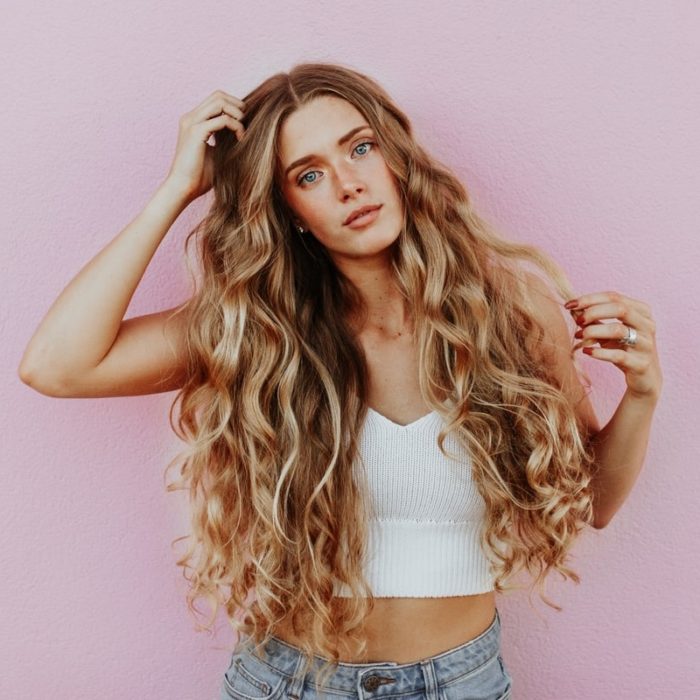
Who hasn’t had a hair loss scare? All of us, at some point, start to fear that we might be losing too much hair. While most of the time, it’s just a false alarm, and our hair’s routine shedding, in some cases, it is more than that. But what could be causing the unexpected hair loss?
If you have been experiencing hair fall and have reason to believe that it’s not just your shedding cycle, the first thing to do would be consulting a doctor. In this article, we will discuss the stages of hair growth, causes of hair fall, and how you can reduce it naturally.
Hair Growth – The Stages
Have you ever wondered why your hair doesn’t grow past one point, no matter how much you try? This is because, contrary to popular belief, your hair has a life cycle of 2-6 years, after which it falls out to let new hair grows in its place (1), (2).
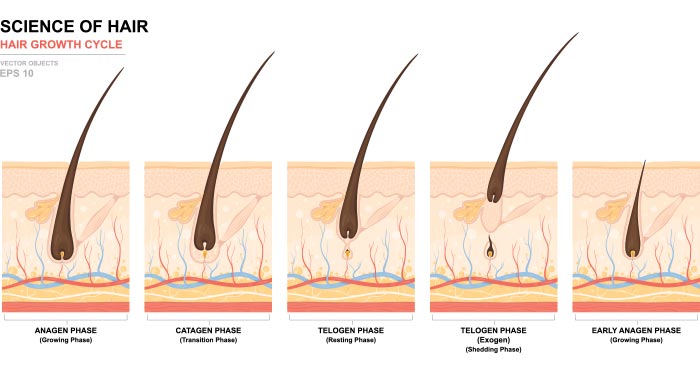
Stage 1: Anagen
This is the phase in which the hair grows out from the follicles, and the shaft is continuously constructed, increasing the length of your hair. This phase can last for 2-6 years.
Stage 2: Catagen
In this phase, your hair prepares to go into resting. This stage can last for about 2 weeks.
Stage 3: Telogen
The last phase is the resting phase in which the hair stops growing and eventually falls out to let new hair replace it. This phase lasts for about 5-6 weeks.
Stage 4: Neogen And Exogen
Neogen is the regeneration stage of a hair follicle, where a new follicle grows in place of the old one. Exogen is the releasing of the old anagen.
About 10-20% of your hair is always in the resting phase at any given time. Hair loss occurs when your hair falls out without completing this three-stage cycle. The hair loss becomes permanent when the follicle stops producing hair, leading to balding. There are two types of hair fall that can lead to balding. Keep reading to find out what they are.
Types Of Hair Loss
Pattern 1: Telogen Effluvium
If you have been experiencing loss of hair from all over your scalp and body, it is likely that you have Telogen Effluvium.
Telogen Effluvium occurs when more than 20% of your follicles suddenly go into the telogen phase, decreasing the number of follicles that are actively growing hair (3). This results in the loss of volume and, eventually, balding. Telogen Effluvium is mostly induced by triggers.
- Health triggers: Malaria, typhoid, tuberculosis, thyroid issues, organ dysfunctions, hiv, malnutrition, syphilis, autoimmune diseases, and nutrient deficiencies.
- Stress Triggers: Emotional trauma, heavy labor, starvation, crash diets, serious injuries, and surgeries.
- Drug Triggers: Oral retinoids, oral contraceptives, antithyroid drugs, anticonvulsants, hypolipidemic drugs, beta-blockers, amphetamines, Captopril, and heavy metals.
- Local Triggers: Hair dye allergies
Pattern 2: Alopecia
Hair loss can take many forms, ranging from loss in well-defined patches to diffuse or total hair loss, which can affect all hair-bearing sites. This is called alopecia or hereditary hair loss. There are many types of alopecia, the most common being androgenic alopecia ( male and female pattern hair loss), and the second being alopecia areata ( patchy hair loss) (4), (5).
In androgenic alopecia, hair starts to fall off when testosterone (the male sex hormone) is converted into dihydrotestosterone and starts to attack the hair follicles, rendering them useless and curbing hair growth.
Female pattern baldness is strikingly different from male pattern baldness. The primary symptoms of female pattern baldness include the following:
- Hair thinning in female pattern baldness is observed mainly on the top and the crown area. Balding starts with the widening of the center hair part.
- The front hairline remains unaffected in most patients.
- The hair loss may be acute, but it does not lead to complete or near total baldness, as it does in men.
- More hair loss observed during showers and while brushing your hair.
Let’s take a look at what exactly causes hair fall.
What Are The Causes Of Hair Fall?
The causes of hair fall vary from person to person. While in some cases, external factors might be responsible, some serious medical conditions, lack of nutrition, and heredity are also leading causes of baldness in most patients (6). The top factors that might cause premature hair loss in women are:
1. Hereditary Factors
If your parents have a hair loss problem, it is likely that you will as well. Hereditary hair fall is called alopecia. While this is more evident in men, women, too, are likely to develop genetically inherited alopecia. There are various types of alopecia, like androgenic alopecia, traction alopecia, etc.
2. Hormonal Changes
Hormonal changes in the body increase the sensitivity of hair follicles, weaken hair roots, and cause excess hair fall. Menopause, ovarian cyst, hypothyroidism, hyperthyroidism, etc. bring about changes in your body’s hormonal balance, which may eventually lead to hair loss.
3. Pregnancy
Most women experience frequent dehydration, fatigue, and hormonal imbalance during and post-pregnancy. This causes increased sensitivity in the hair follicles. It also creates unfavorable scalp conditions. All of these factors together may lead to chronic hair fall.
4. Physical And Mental Stress
Persistent illness, drastic and excessive weight loss, and extreme physical labor can cause the body to get dehydrated and exhausted. This can make the hair follicles undernourished and weak and may cause rapid hair loss.
5. Scalp Infection
Fungal, bacterial, and viral infections like seborrheic dermatitis and psoriasis in the scalp can weaken the roots and damage hair follicles, thereby causing thinning, breakage, and hair fall.
6. Alopecia Areata
This is an autoimmune disorder in which the immune system mistakes hair for a foreign contaminant and starts attacking the hair follicles, causing hair loss (5). There is no cure for this condition.
7. Medication And Treatments
Certain medical conditions call for treatments and surgeries that help to cure the ailment. While these treat your condition, the side effects of the treatments can often damage the hair follicles and cause rapid hair fall. Treatments like chemotherapy, steroids, and medication for typhoid, heart diseases, depression, etc. may cause extreme hair fall.
Alopecia was found to be one of the common adverse effects of Voriconazole, an antifungal medicine (7).
Other drugs that may cause hair loss as a side effect include (3), (8), (9):
- Acne medications containing vitamin A (retinoids)
- Antibiotics and antifungal drugs
- Antidepressants
- Birth control pills
- Anti-clotting drugs
- Cholesterol-lowering drugs
- Drugs that suppress the immune system
- Drugs that treat breast cancer and other cancers
- Epilepsy drugs (anticonvulsants)
- High blood pressure medications (anti-hypertensives), such as beta-blockers, ACE inhibitors, and diuretics
- Hormone replacement therapy
- Mood stabilizers
- Nonsteroidal anti-inflammatory drugs (NSAIDs)
- Parkinson’s disease drugs
- Steroids
- Thyroid medications
- Weight loss drugs
8. Thyroid Disorders
Thyroid disorders and anti-thyroid medication almost always lead to hair loss. The hair looks sparse, and the hair loss is evenly distributed all over the scalp. Successful treatment often leads to the hair growing back, but in some cases, the hair loss is permanent.
9. Overprocessing And Styling
While everyone wants their hair to look on point all the time, going overboard with chemical hair treatments and hot styling tools can lead to hair fall.
10. Iron Deficiency, Anemia, And Blood Loss
Deficiency of red blood cells in the body, sudden loss of blood, and insufficient iron levels in the body cause not only fatigue, weakness, and headaches, but also hair loss.
11. Crash Diets And Malnutrition
Insufficient intake of nutrients and following an unhealthy and unbalanced diet can cause malnourishment in the body. This leads to dehydration of the scalp and hair and can trigger excessive hair fall.
12. Over Supplementation
Over supplementation of a few nutrients, like vitamin A, vitamin E, and selenium, was found to cause hair loss, among other risks (10). Most hair supplements contain these nutrients, although deficiencies in vitamin A and selenium have not been linked to hair loss. Instead of taking vitamins in their concentrated form as supplements, it is better to take them from fruits and other organic foods.
13. Styling
Heavy usage of hair products and hair accessories can lead to hair loss. Some hair products, like sulfate lauryl shampoos and hair sprays, are known to contain chemicals that are not good for your hair and scalp. Hair accessories (like elastic bands) are known to pull on the hair. These can cause your hair to fall out. Hairstyles that require the hair to be pulled tight like a tight braid or ponytail can also cause hair fall.
We know that dealing with hair fall can be overwhelming, but there are things you can do to curb the problem.
When To Consult A Doctor
While hair fall can be a minor problem, there are some instances when you need medical advice. Consult a doctor if you experience any of the below-mentioned:
- Hair loss in an unusual pattern
- Pain or itching paired with hair loss
- The scalp is red, scaly, or otherwise abnormal.
- Male pattern balding if you are a woman
- Bald spots on the eyebrows
- Weight gain, muscle weakness, temperature sensitivity, or fatigue paired with the hair loss
- Scalp infection with hair loss
While you can’t stop hair fall completely, here are a few tips to reduce hair fall.
How To Reduce Hair Loss
1. Hair Care
Making a few small changes to your daily routine can help reduce hair fall.
- Use a wooden wide-tooth comb to untangle your hair. You can use your regular brush after this. This will reduce breakage and hair loss from pulling. It is also crucial to remember not to comb your hair while it is wet. Your hair is at its most vulnerable when wet, which increases the chances of breakage.
- Another tip is to use your towel the right way. Drying your hair vigorously with a towel will lead to hair breakage, tangles, and pulling. Instead, gently squeeze out excess moisture from your hair with your towel and then let it dry naturally.
- Try to switch to shampoos that are free of sulfates, silicones, and parabens to avoid loading your scalp and hair with harsh chemicals that cause damage, making your hair brittle and more prone to breakage.
- Wash your hair at least once every three days with a gentle hair cleanser or shampoo to remove all the accumulated dust, dirt, oil, and bacteria build-up. Keep it clean at all times to avoid hair fall from clogged follicles. It is also important not to wash your hair more than thrice a week. Overwashing will strip your scalp and hair of natural oils that are essential for healthy hair growth.
- Do not subject your hair to frequent chemical treatments, excessive blow drying, ironing, and coloring as it can lead to hair loss. If you color your hair and have been facing hair fall issues, it would be a good idea to take a short break before you put any more chemicals in your hair. A study showed that allergic contact dermatitis from hair dyes might be responsible for increased hair loss (11).
- Avoid hairstyles like tight ponytails, pigtails, or braids on a daily basis. Using hair elastics to pull back hair tightly can cause hair fall.
2. Yoga And Exercise
You’d be surprised at how much stress can contribute to hair loss (12). And nothing relieves stress as well as physical activity does. Regular exercise like yoga can go a long way in reducing stress and may help curb hair fall.
3. Supplements And Medicines
There are many hair growth supplements that can help thicken hair and curb hair fall. Even certain vitamin supplements go a long way in improving the health and volume of your hair. However, do not start taking any supplements without consulting a healthcare professional.
Minoxidil (Rogaine) is one of the most effective medications for hair loss, though it may have a side effect of hypertrichosis (abnormal amount of hair growth over the body) (13).
Cyproterone acetate is another effective drug for hair loss in women, though it is not advisable for men (14).
4. Natural Treatments
a. Hair Oil Treatment
There have been reams and reams of paper dedicated to how oiling your hair overnight can make a difference. Though you may not like the idea of sticky, oily hair, the application of oils, like coconut, peppermint, and argan oils, can help your hair in the long term (15), (16), (17). Leaving your hair oiled overnight provides enough time for each strand to be coated and for the scalp to get nourished. Dandruff and dead cells are loosened by the movement of your fingers and can be removed easily with shampoo the next day.
Directions
- Pour two tablespoons of a carrier oil like coconut oil in a bowl.
- Dip your fingers into this bowl and start massaging the oil into your scalp.
- Give yourself a good scalp massage for about 15 minutes until your entire scalp is covered in the oil.
- Work the remaining oil through the length of your hair.
- Leave the oil in overnight and wash it off with shampoo the next morning.
- Repeat this twice or thrice a week.
b. Hot Oil Treatment
If you are not keen on oiling your hair overnight, you can always apply oil an hour before bathing. Warm oils are preferred because they can penetrate into the pores of the scalp more easily and increase the flow of blood in the area. Follow the steps listed below to give yourself a hot oil treatment.
Directions
- Pour two tablespoons of a carrier oil into a bowl and heat it for a couple of seconds until slightly warm.
- Dip your fingers into this bowl and start to massage the oil into your scalp. Give yourself a good scalp massage for about 15 minutes.
- Work the remaining oil through the length of your hair, ensuring that you coat it from the roots to the tips.
- Leave the oil in your hair for an additional 30-45 minutes.
- Wrap your hair with a hot towel (you can soak it in hot water or use a blow dryer to heat it up) during this time. Wash the oil out with your regular shampoo.
- Repeat 2-3 times a week.
c. Homemade Hair Masks
Homemade hair masks are an inexpensive and convenient option when it comes to controlling hair fall without exposing your hair to any harmful chemicals. They help to strengthen, nourish, and beautify your hair. Here’s a simple homemade hair mask for treating hair loss:
5. Green Tea And Egg Hair Treatment
Green tea contains EGCG (epigallocatechin-3-gallate) that can help stimulate hair growth (18). Eggs have been a popular hair care ingredient for decades because of their high protein content. They provide your hair with the essential nutrients it needs to grow healthily.
Directions
- Take 1 egg yolk in a clean bowl. Add 2 tablespoons of freshly prepared green tea to it.
- Mix well until the mixture reaches a frothy and creamy consistency. If it becomes too thick, you can add more green tea to dilute it.
- Part your hair from the center and apply this mask to your scalp and hair.
- Cover your hair with a shower cap.
- Leave this on for about 30 minutes and then rinse well with cool water and your regular shampoo.
- Repeat 2-3 times a week for best results.
6. Aromatherapy
A study showed that aromatherapy with essential oils could be an effective treatment for alopecia (19). You can use thyme, rosemary, cedarwood, and lavender on a regular basis to reduce hair loss.
7. Salon Treatments
a. Hair Spa
Many salons offer hair spa treatments that are meant to strengthen, condition, and nourish your hair. These treatments are ideal for women who are busy and stressed. They not only improve hair health but are also the perfect way to relax and destress. Listed below are the benefits of a hair spa treatment:
- It deeply conditions your hair, treats split ends, and repairs dry, damaged, and dull hair. It also helps get rid of dandruff.
- Hair spa treatment provides your hair and scalp with the essential nourishment needed for healthy hair growth.
- It helps fortify the hair follicles and revitalizes the scalp, creating an ideal environment for unhindered hair growth.
- It prevents scalp aging and improves blood circulation in the scalp with a stimulating massage.
- It also helps remove impurities from your hair and scalp, preventing clogging and build-up, resulting in better hair health.
- The hair spa treatment offers relief from stress and tension.
b. Laser Therapy
Low-Level Laser Therapy (LLLT) is growing in popularity as an effective hair growth treatment. It deals with hair loss or thinning hair by providing damaged cells in your scalp with extra energy to resume normal functioning. This can help stimulate hair growth and curb hair fall (20).
8. Hair Transplantation
Hair transplantation is one of the restorative methods for hair. It is achieved by taking donor hair and placing it where hair loss occurs. In the beginning, there might be a period of effluvium, but the donor hair eventually grows the same way it did on its donor site. It has very few complications (21).
9. Diet
When it comes to hair health, what you put in your body is just as important as what you put on your hair. Maintaining a healthy and balanced diet becomes crucial as soon as you notice hair fall. You can consume foods that are rich in zinc, iron, vitamin B complex, vitamin C, omega-3 fatty acids, and proteins (22). A healthy diet will also help keep your hair moisturized and nourished, leading to lesser hair fall, fewer split ends, and curbed breakage.
Consider adding more of these to your diet – carrots, oats, whole grains, brown rice, green leafy vegetables, citrus fruits, lentils, sweet potatoes, pumpkin seeds, oysters, nuts such as walnuts and almonds, flaxseed oil (Linseed oil) or ground flaxseeds, seafood like salmon and tuna that arerich in omega-3 fatty acids, eggs, beans, yogurt, and low-fat cheese.
Avoid fatty foods and fizzy drinks while also cutting down on your intake of carbs.
Dealing with hair loss can be hard, but it is not impossible. With all the new technologies, age-old natural remedies, and a tweak to your hair care regimen, dealing with hair fall can become easier. Talk to a dermatologist or trichologist who will suggest the right mode of treatment for you.
References
Minoxidil And Its Use In Hair Disorders; A Review, Dovepress: Drug Design, Development and Therapy, US National Library Of Medicine, National Institutes of Health.
https://www.ncbi.nlm.nih.gov/pmc/articles/PMC6691938/
Hormonal therapy in female pattern hair loss, International Journal of Women’s Dermatology, US National Library of Medicine, National Institutes of Health.
https://www.ncbi.nlm.nih.gov/pmc/articles/PMC5419033/
Hair Cosmetic: An Overview, International Journal Of Trichology, US National Library Of Medicine, National Institutes of Health.
https://www.ncbi.nlm.nih.gov/pmc/articles/PMC4387693/
Peppermint Oil Promotes Hair Growth Without Toxic Signs, Toxicological Research, US National Library Of Medicine, National Institutes of Health.
https://www.ncbi.nlm.nih.gov/pmc/articles/PMC4289931/
Activation of MITF by Argan Oil Leads to the Inhibition of the Tyrosinase and Dopachrome Tautomerase Expressions in B16 Murine Melanoma Cells, Evidence Based Complementary And Alternative Medicine, National Institutes of Health.
https://www.ncbi.nlm.nih.gov/pmc/articles/PMC3723062/
Human Hair Growth Enhancement In Vitro By Green Tea Epigallocatechin-3-gallate (EGCG), Phytomedicine, US National Library Of Medicine, National Institutes of Health.
https://www.ncbi.nlm.nih.gov/pubmed/17092697
Randomized Trial Of Aromatherapy. Successful Treatment For Alopecia Areata, Archives Of Dermatology, US National Library Of Medicine, National Institutes of Health.
https://www.ncbi.nlm.nih.gov/pubmed/9828867
Low-Level Laser Therapy For The Treatment Of Androgenetic Alopecia In Thai Men And Women: A 24-Week, Randomized, Double-Blind, Sham Device-Controlled Trial, Lasers In Medical Science, US National Library Of Medicine, National Institutes of Health.
https://www.ncbi.nlm.nih.gov/pubmed/30569416
Hair transplantation Surgery, Indian Journal Of Plastic Surgery, US National Library Of Medicine, National Institutes of Health.
https://www.ncbi.nlm.nih.gov/pmc/articles/PMC2825128/
The Role of Vitamins and Minerals in Hair Loss: A Review, Dermatology And Therapy, US National Library Of Medicine, National Institutes of Health.
https://www.ncbi.nlm.nih.gov/pmc/articles/PMC6380979/

